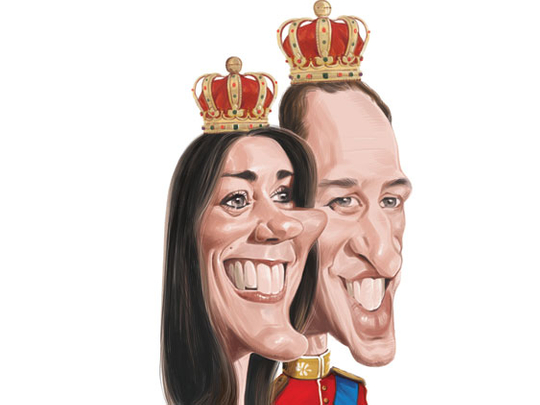
There is something enduring about the United Kingdom’s monarchy. It represents history, heritage, culture, the very essence of Britishness itself.
And continuity.
The very fact that its people sing God Save the Queen as an anthem exemplifies the sentiment ‘long may she reign over us’.
This same nation gave mushy peas, black pudding, clotted cream and fish-and-chips — but also Henry VIII and his six wives, the madness of King George III and the trials and tribulations of Charles and Diana, playing out better than any soap opera on the pages of tabloid newspapers and on television screens around the world.
From dashing romances to soldiers marching in red tunics and bearskins to stiff upper lips and a stiffly waving long-gloved hand from gold-gilded carriages, princes charming commoners, it is the stuff of fairy tales. An ordinary girl, whose parents run an online party-supply business in suburban obscurity, can fall in love and marry a full blue-blooded prince in line to a throne that has a lineage of millennia.
A kindergarten teacher who drives a Mini can court and marry — and divorce — a prince who talks to his plants and bemoans progress in the form of modern architecture.
Britons — and many billions more around the world, whether living in nations who shook off the yokes of colonialism of European monarchs — view the happenings of the House of Windsor with fascination, cynicism or, indeed, simple envy.
That’s why the Royal Wedding of Kate Middleton to Prince William, second in line to the throne, garnered more television viewers in April 2011 than those who watched the opening of the London Olympics in July 2012. An exchange of rings worth more than the corporate value of Olympic rings! Westminster Cathedral, without a sponsorship sign in sight, more watched than all of the Olympics opening ceremony.
However, the nuptials themselves are more than the joyful union of man and wife — a public profession of love. They are the hope that this union will produce an heir, that succession will be secured, that the institution of monarchy itself will endure through trials and tribulations — from scandal and adultery, abdication and divorce, from generation to generation — that the kingdom will be united in knowing that the lineage is secure.
This week, it appears, continuity is assured.
The Duchess of Cambridge spent four days in a private London hospital — not just with morning sickness, as most mothers-to-be would call it — but with the grandly sounding condition of hypermesis gravidarum.
How appropriate that a royal pain would be so nobly entitled. (One wonders whether Harry, a prince with a penchant for parties, endures a simple hangover or rather suffers from hypervino cerebellum.) Prince William, a search and rescue pilot in North Wales, dashed to his wife’s side as the hoards of media waited for any word, any sign, that all was indeed right in the game of thrones.
The Duke and Duchess of Cambridge had hoped to keep the pregnancy a secret until that most British Christmas event occurs — the gathering of the Royal Family, where the proud and exciting parents could announce to grandparents, parents, in-laws and outlaws, that there would soon be the pitter-patter of little feet down the corridors of Sandringham or Balmoral, Kengsington or Buckingham Palaces. There would be a new focus for the nation, an heir to the throne, a son or daughter to be one day enthroned in a coronation ceremony, to have a fairy tale romance and to continue on the family’s business of Britishness.
The line of succession is long, but the advent of a new baby, due in late spring, if all goes to plan — and those billions who tuned in for the royal wedding do indeed wish that it does — will shift all after Charles and William down a notch.
With gleeful excitement, medical experts and royal watchers — enthused, when cases where hypermesis gravidarum occurs — feel that there is also a greater chance that the mother-to-be may indeed be having twins.
Continuity — an heir and a spare all at once. We are amused.









